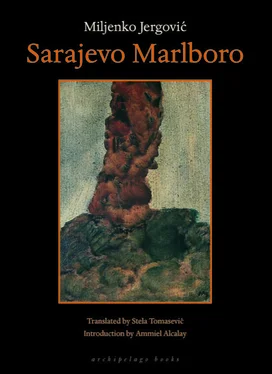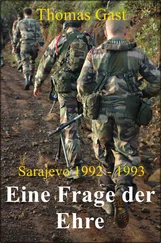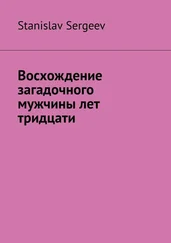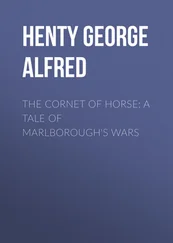One day the authorities in Vareš put him in the back of a truck full of people from Kakanj and told him to go to Croatia. The policeman gave him a cynical smile and remarked that “They have superior methods over there,” and that they would inevitably force him to divulge what he had been through. He was afraid of being harassed at Serb checkpoints, or being stopped and threatened or searched, but he was even more afraid when he stepped off the lorry in Čapljina and was approached by a television reporter who stuck a microphone under his nose and turned a spotlight on him. He asked the very same question that had come up again and again in Vareˇs, but on this occasion it was asked in such a confident voice that Rudo L. imagined the reporter already knew the answer. But who is privy to a vow? The person who makes it, the Lord, and perhaps the devil, too. Who cares if the reporter knew the secret? Rudo L. made up his mind to to surrender his soul to the journalist. He told him that the Chetniks had stopped the lorry on the way to Croatia, and the disappointed reporter immediately vanished. Rudo L. interpreted the episode as a divine omen, a reward for his silence.
The next day he saw the sea for the first time and took his first boat trip. The water was deeper than any water Rudo L. had ever imagined, and the boat was larger and more crowded than anything he had seen on tv. Rudo L. couldn’t understand why the boat didn’t sink and how it floated gently on the surface like a walnut shell. It was a sign — real tangible proof — that miracles exist and that a long time ago St. Francis really did walk on water, unsinkably like a boat packed with hundreds of people. Even though he was a long way from the Colony, Rudo L. was a happy man again.
His daughter met him in Rijeka, and he told her, if only by way of a sign or a hint, something of what he’d been through and what temptations he had endured. Her eyes filled with tears as she listened to him. She didn’t ask him why he’d left Kakanj, but he told her anyway that he had made a vow.
It was a coincidence that not very far from Rijeka was a mining town called Labin. Perhaps it had a colony too — or perhaps not. It wasn’t as though Rudo L. needed to know anyway. He was ninety years old, and it was too late, even for a Bosnian, to pretend to be alive.
Hypnotized by the rhythm, the young boy had been declining the Latin word terra for the last fifteen minutes. He gently swayed in the middle of the room, happy and vacant, and just as handsome as a Buddhist monk.
His stepfather was chain-smoking cigarettes and rewinding the videotape of a massacre he had filmed in central Bosnia. The speededup images of suffering and tears played on your nerves, dispelling the memory of emotion. He had to think of a commentary in a hurry in order to dispatch the report to the United States the next day. Briefly he thought it would be a good idea just to record the sound of the boy declining terra, terra, terram, terrae . . and blood.
“Dino, why don’t you go and study in your room?”
“Can’t you see, Zoka, that I’m doing my Latin?”
“Can’t you go to your room and do something else?”
“I’ve done everything else.”
“Hey, kid, unless you push off to your room to study, I’ll play you a video of Tudjman’s speech in Sisak.”
The boy looked at his stepfather with dismay. He stopped in the middle of a particular declension and went to his room. The stepfather switched the video off, lit another cigarette and exhaled the smoke happily. He enjoyed the silence under the white ceiling, attempting to be here, in Zagreb, if only for a moment, what he used to be in Zenica. A successful man, that is, and full of himself.
After ten minutes the boy came back into the room. He closed the door after him but didn’t take another step, like somebody who had come into a rather daunting office. He remained silent.
Calmly at first, and then with irritation, the stepfather looked him straight in the eye.
“Zoka, are there any horrible pictures in this speech?”
The stepfather scratched his head and laughed, then he got up. He spent a long time fixing his tie in front of the mirror.
“Zoka, do we need anything from the shops?”
“I don’t know. . No, we don’t. . Ask your mom.”
“Do you need any beer?”
Another look, as in westerns, right in the eye.
“What is it that you want, Dino?”
“You know, Zoka, I’m very grateful to you. You bought me shoes, and everything. I mean, I have a pretty good idea of your financial situation, and so on. But of course I’m still young, I don’t understand everything, so. .”
“Yes, Dino, and —?”
“You’re going out now, aren’t you, Zoka?”
“So?”
“I’d like to watch the cartoons on the satellite channel.”
The stepfather put his jacket on and arranged his greased-back hair in front of the mirror. He went out in his slippers. Leaning on the doorway, he put his shoes on. Then he swayed like an old drunkard and pushed against the walls with his thumbs. The boy laughed. The other winked knowingly and went downstairs.
The following day. The boy goes to church with his best friend. A mass is being held, the hall is filled with black and pious figures. The boys sit down in an empty pew and open their mouths in time to the prayer. Play-back, of course, amateurish and inexperienced. The words are becoming more and more complicated and confused, and the boys can no longer follow the rhythm as they lip-sync. Toward the end of mass, the priest approaches the boys and takes them to his room. He asks their names. They timidly tell him what they are called and pull their sleeves over their sweaty hands. As if they were guilty. The priest smiles and asks them where they’re from. From Zenica and Prijedor.
The priest puts his hand in a drawer and pulls out pencils, notebooks and sweets. He pats them on the shoulder. They feel uncomfortable.
“You know what, you two really don’t have to go to church, to mass and such things. When you’re not well, when you’re sad or when you get frightened you can just say to yourself, ‘God, help me,’ and everything will be all right.”
The boys leave the church in silence. They don’t speak until they get home but they part with a few words to show that everything is, as it were, normal.
At home the stepfather tries to explain that not everyone has to go to classes of religious instruction because not everyone has the same beliefs. Of course, the stepfather is, like the priest, a Catholic. The boy, or course, isn’t. He tells him that a girl at school, for whom he has a soft spot, often corrects his pronunciation. The stepfather opens his arms, laughs and says that women are like that. The boy goes to his room, saying that he has to study more Latin.
He locks himself in the room. The stepfather and mother knock on the door. He tells them he’s got important things to do. He stays in his room for two whole hours. He emerges ready to go out, with a hockey helmet on his head. He’s going to make a snowman. The stepfather and mother go into his room. They try to smell his secret. They look under the bed. They flick through the boy’s notebooks. But they can’t find anything. Disappointed, they look at each other. The mother puts away various things that have been scattered around the room. The stepfather talks some pedagogical nonsense.
Later. The mother found some pages that had been torn out of a notebook. The boy was writing to his grandfather in Zenica. If it had been anybody else’s son, the sentences would have looked stupid and banal. As it was, they were perfect to cry over. The mother told the stepfather about the contents of the letters. He nodded and later told his friends about them. He translated the words for American editors, and they replied that they were wonderful and moving. The mother returned the boy’s letters to where she had found them. She didn’t say anything. She was just a bit more affectionate toward him from then on.
Читать дальше










